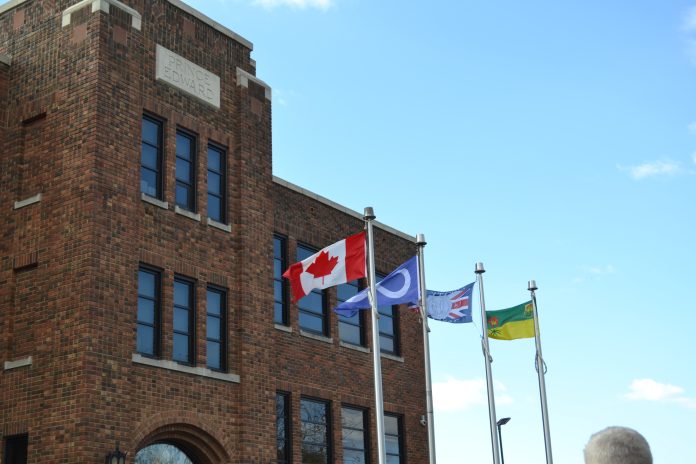
The Saskatchewan Rivers School Division continues to make progress in addressing some of the Truth and Reconciliation Commission’s (TRC) Calls to Action.
Superintendent Jennifer Hingley and Director of Education Robert Bratvold gave the board an update on the school division’s progress during Monday’s regular meeting.
There are two reports each year with the June one being the final. The work has become so expansive that it can no longer be boxed into a report in the current format.
The division has been tracking efforts to respond to those calls since 2017. Board chair Darlene Rowden says the progress was encouraging to see.
“We do many things but not just many things. We’re doing them well and we hear that from First Nations communities and community views,” Rowden said. “We hear from our Elders how supportive they are of our efforts and, and the divisions, efforts and they see themselves in our schools, so that’s huge in the city of Prince Albert.”
Rowden said the Calls to Action are also becoming prominent in the division’s rural schools as well.
The work on Calls to Action was a passion of outgoing director Bratvold.
Since the TRC published their reported in 2015, Sask. Rivers has increased its focus on teaching Indigenous languages. They have also focused on giving teachers more opportunities to learn about Indigenous culture through professional development. That includes things like tipi raisings and ribbon skirt workshops.
The division has applied for and received funding for to help implement Jordan’s Principle in response to TRC calls to action on child welfare. Jordan’s Principle helps ensure all First Nations children living in Canada can access the products, services, and supports they need, when they need them.
The Mentor program with Jordan’s Principle has expanded with over 30 mentors working in schools to support First Nations students through the funding.
In 2022 mentors helped distribute jackets and food hampers from the Prince Albert Grand Council, and took part in Professional Development with various projects throughout the year.
Response to the culturally appropriate curriculum call included revision of Won Ska Cultural School where course selection will reflect land-based learning opportunities, cultural connections with a cross-curricular approach. This approach came from the Elder’s Council and what they saw as Won Ska’s needs as a cultural school.
Curriculum work was being done by Bratvold, Patricia Bibby, Hingley and Jodi Letendre and the school’s team and creating new curriculum that is land-based and cultural.
As well the learning model for Literacy, Math and High School also all have Indigenous worldview embedded in them.
The call on protecting the right to Aboriginal Languages has expanded in the division.
Recent steps include establishing the Cree Language Program at John Diefenbaker School to Grade 2 and establishing a partnership with Metis Nation-Saskatchewan (MN-S) to create a Michif Language and Culture Program at St. Louis and Queen Mary School in Sept., 2021 which continues to this day,
The division has also created an Indigenous Language Learning Community in Fall of 2021. The group supports Cree and Michif teachers in the division and Language Keepers in early years and high school, a Dakota teacher, a Language Keeper, an educational assistant at Wahpeton, and a Cree teacher at Muskoday.
The report also mentioned the flag raising ceremony in October under the call for inclusion of Aboriginal perspectives in education.
Another growing aspect is the Elder’s Council and other Elders who provide guidance and work directly with students. As part of the call for building capacity for intercultural understanding and mutual respect there has been completion of the first cycle of four Pipe Ceremonies.
The division hosted a Fall Feast and Pipe Ceremony in November at Wesmor, a Winter Pipe Ceremony in February at Princess Margaret and a pipe ceremony in Birch Hills.
Another step is the Indigenous worldview is being embedded in Experiential Play Based Learning in classrooms throughout the division and shared in all early years Professional Development and in all Experiential Play Based Learning Professional Development.
Other areas covered during the meeting include, justice, professional development and training for public servants, education for reconciliation, and sports and reconciliation.
The division has also supported KidsFirst, helped schools access Catholic Family Services, and worked in partnership with the Prince Albert Early Years Resource Centre to address calls to develop culturally appropriate parenting programs.
michael.oleksyn@paherald.sk.ca

